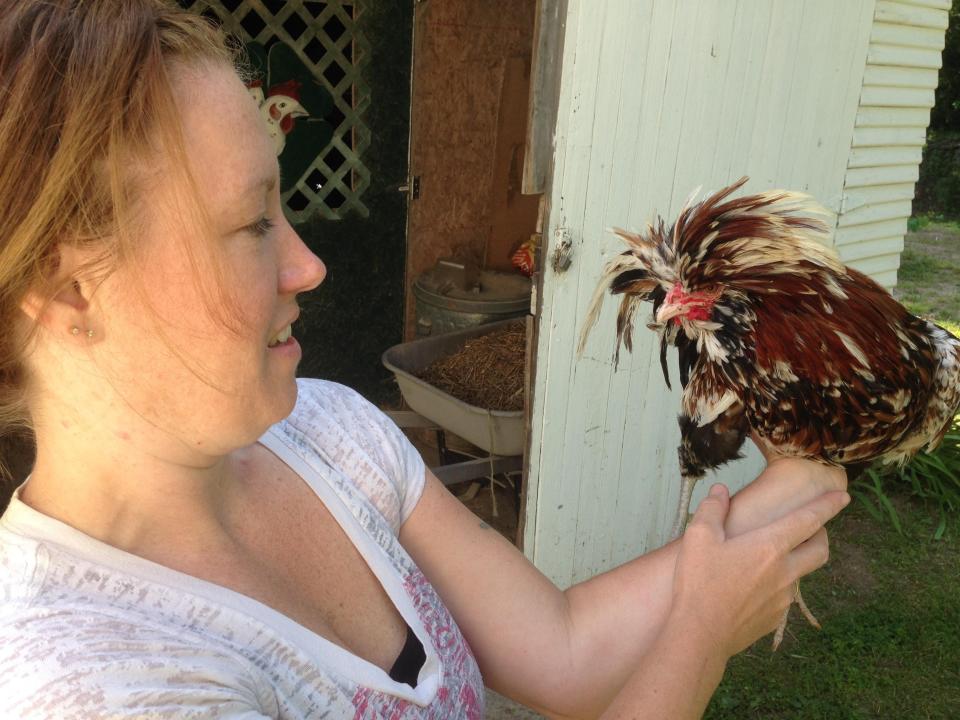Poultry exhibitions likely at Calhoun County Fair after state lifts ban
The ban on poultry and waterfowl exhibitions in Michigan has been lifted, increasing the likelihood that live poultry will be shown at the Calhoun County Fair Aug. 13-20.
Implemented as a precautionary measure to protect against the spread of a highly pathogenic strain avian influenza, the ban was lifted June 11 by the Michigan Department of Agriculture and Rural Development(MDARD).
Poultry and waterfowl exhibitions were halted May 10 until the state went 30 days without a new detection of the virus in domestic poultry. While MDARD did announce a detection of highly pathogenic avian influenza in a commercial flock the next day, there have been no further cases of the disease in Michigan’s domestic birds, officials said.
“Even though the state has been able to reach this incredibly important benchmark, this does not mean the virus has left Michigan,” Nora Wineland, the state's veterinarian, said in a press release. “HPAI continues to be detected in wild birds throughout the state, which is not unexpected as the virus is known to be carried by wild birds. Since the virus is still present in the environment, it is still crucial for owners and caretakers of domestic birds to take every step possible to protect their flocks.”
MDARD said it continues to monitor national HPAI trends and quickly respond to reports of sick or dead domestic birds in Michigan.
If there are any additional detections of the virus in domestic flocks, the department will assess the situation and determine if another stop is necessary to reduce the spread of highly pathogenic avian influenza.

Calhoun County 4-H Program Coordinator Kathy Fischer acknowledged the ban on poultry exhibitions was an important to mitigate the spread of the virus across all flocks in Michigan. Nonetheless, having the ban lifted is "great news" for 4-H poultry participants, she said.
"While we create other opportunities for the youth to participate, it is not the same as having the birds they have worked hard to raise and planned to exhibit," Fischer said. "There is a chance things could change again, so we keep plan B in our back pockets and the 4-H youth will adjust with us if needed. Part of the learning process with animals especially is dealing with things that don’t go as planned."
HPAI is a highly contagious virus that can be spread from flock to flock by wild birds, through contact with infected poultry, by equipment and on the clothing and shoes of caretakers, according to MDARD.
The public health risk associated with avian influenza remains low, according to the U.S. Centers for Disease Control and Prevention. No birds or bird products infected with the virus will enter the commercial food chain, MDARD said.
While lifting the ban is encouraging, the department urges poultry and waterfowl owners to continue keeping their flocks away from wild birds. Some preventative measures to reduce the spread avian influenza include:
Prevent contact between domestic and wild birds by bringing them indoors or ensuring their outdoor area is fully enclosed.
Wash hands before and after handling birds, as well as when moving between different coops.
Disinfecting boots and other gear when moving between coops.
Do not share equipment or other supplies between coops or other farms.
Cleaning and disinfecting equipment and other supplies between uses. If it can't be disinfected, discard it.
Using well or municipal water as drinking water for birds.
Keep poultry feed secure to ensure there is no contact between the feed/feed ingredients and wild birds or rodents.
Domestic bird owners and caretakers should watch for unusual deaths of more than one bird, a noticeable drop in egg production, a significant decrease in water consumption, or an increase in sick birds. If avian influenza is suspected in domestic birds, contact MDARD immediately at 800-292-3939 during the day or 517-373-0440 after hours.
If anyone notices what appears to be unusual or unexplained deaths among wild bird populations, please report these cases to the Michigan Department of Natural Resources (DNR) by:
Using the DNR’s Eyes in the Field app. Choose the “Diseased Wildlife” option among the selections for “Observation Forms.”
Calling the DNR Wildlife Disease Laboratory at (517) 336-5030.
Contact reporter Greyson Steele at gsteele@battlecreekenquirer.com or 269-501-5661. Follow him on Twitter: G_SteeleBC
This article originally appeared on Battle Creek Enquirer: Poultry may return to Calhoun County Fair after state lifts ban

